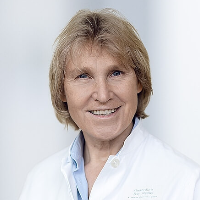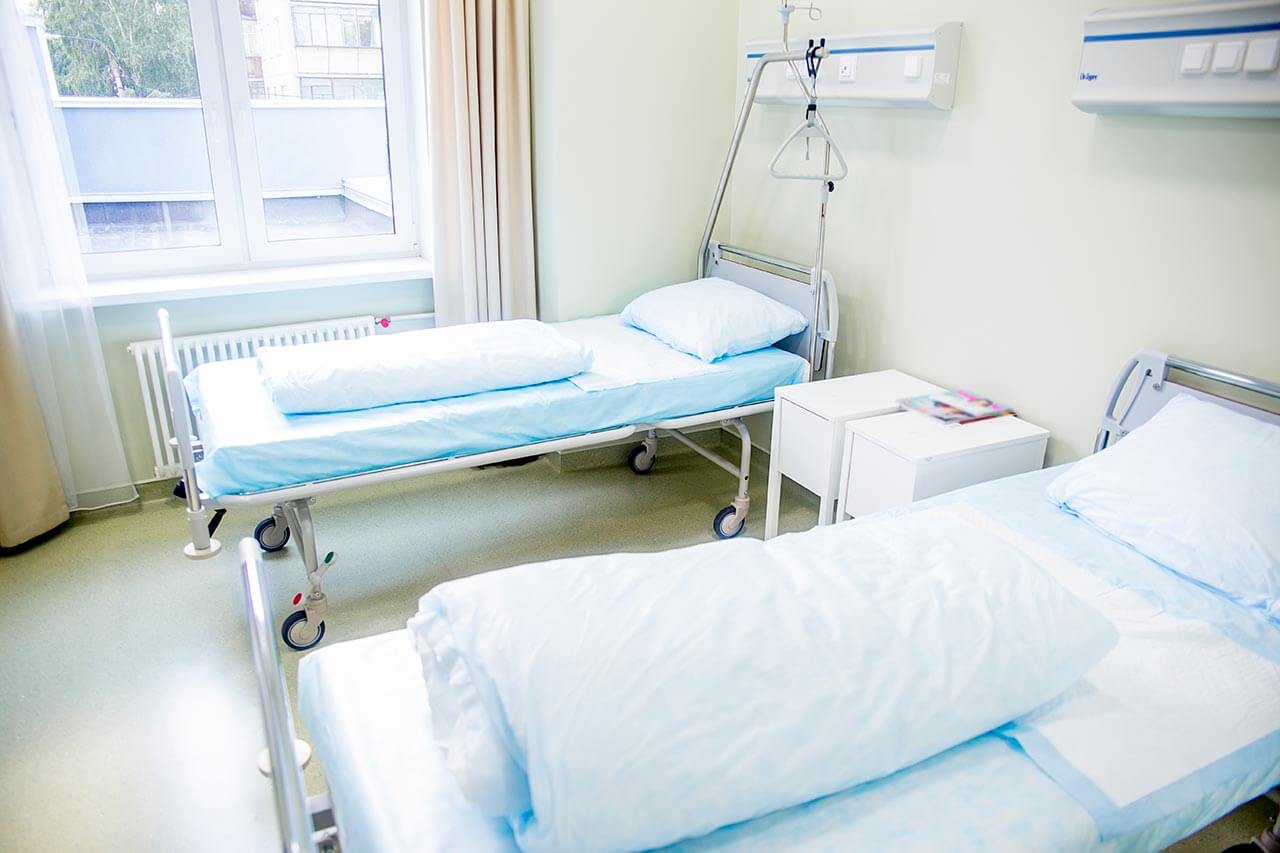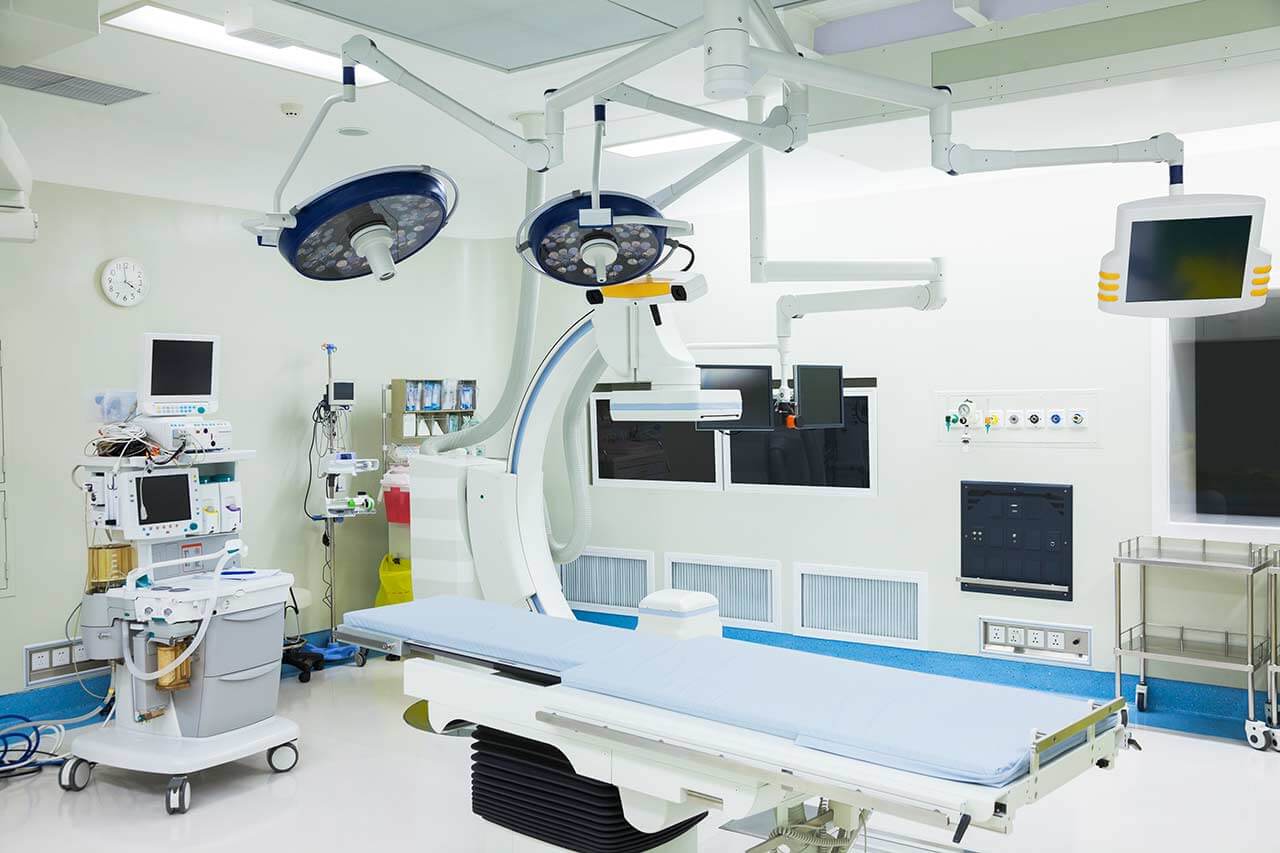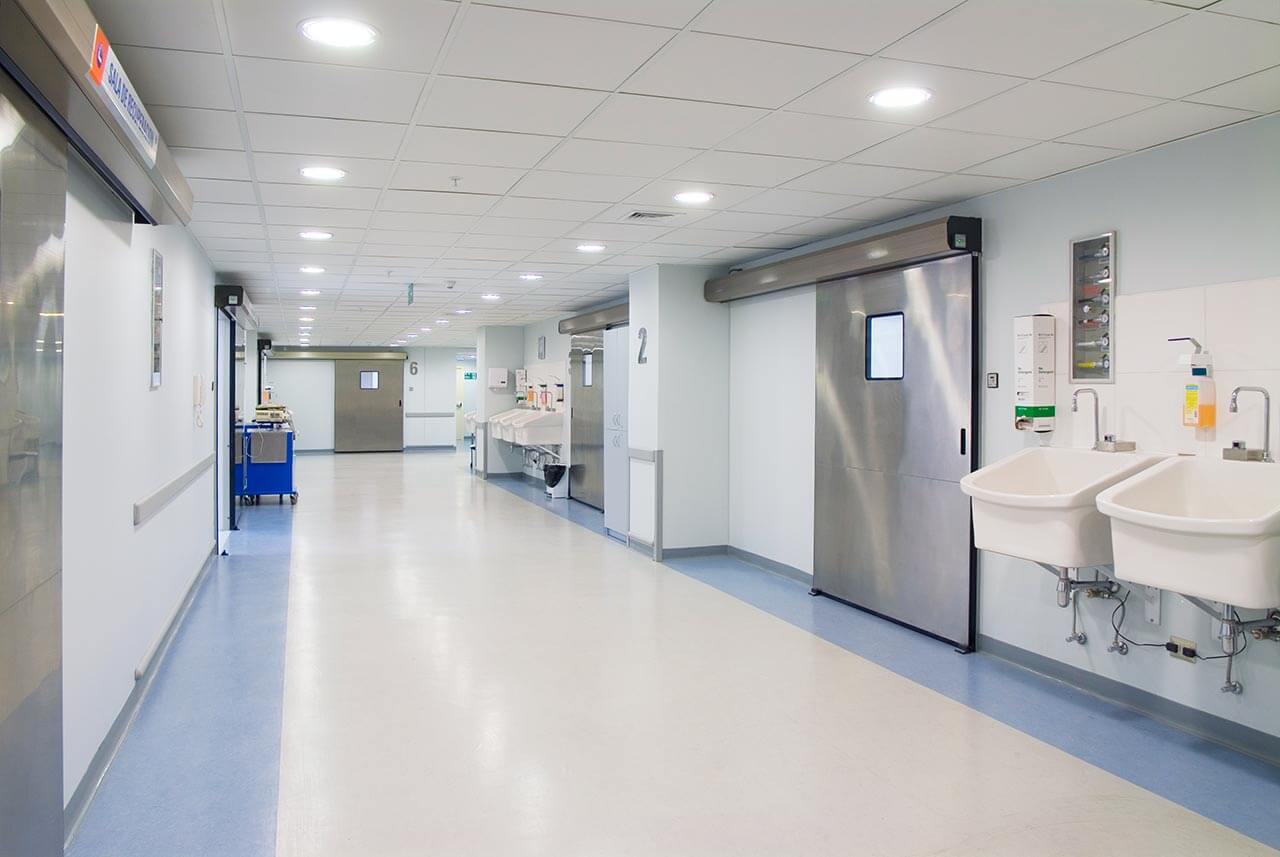
The program includes:
- Initial presentation in the clinic
- clinical history taking
- physical examination
- review of medical records
- laboratory tests:
- complete blood count
- general urine analysis
- biochemical analysis of blood
- TSH-basal, fT3, fT4
- tumor markers
- indicators of inflammation
- indicators blood coagulation
- ultrasound
- CT/MRI scan
- biopsy and histological examination
- preoperative care
- resection of tumor
- histologically and immunohistochemically examination of the removed tissues
- symptomatic treatment
- control examinations
- the cost of essential medicines and materials
- nursing services
- full hospital accommodation
- explanation of future recommendations
Required documents
- Medical records
- X-ray examination (if available)
- MRI/CT scan (not older than 3 months)
- Biopsy results (if available)
Service
You may also book:
 BookingHealth Price from:
BookingHealth Price from:
About the department
The Department of Adult and Pediatric Orthopedics, Trauma Surgery, Spinal Surgery at the University Hospital Oldenburg provides a wide range of top-class medical services in its areas of expertise. The department successfully performs knee, hip, shoulder, and elbow replacement surgery, arthroscopic procedures on the large joints, osteosarcoma resection surgery, and spinal surgery. The department has an emergency service that specializes in the treatment of musculoskeletal injuries of any severity, including sports injuries. The department offers a variety of conservative treatment methods for orthopedic diseases and spinal pathologies. The department's medical team has three operating rooms, one of which is designed for outpatient surgical procedures. The department performs more than 2,500 scheduled and emergency surgeries each year; more than 25% of all surgeries are performed on an outpatient basis, allowing patients to return home the same day. When diagnosing and treating patients, the department's physicians follow the recommendations of the German Society for Orthopaedics and Traumatology (DGOU). The Head Physician of the department is PD Dr. med. Ingke Jürgensen.
The department admits many patients with arthrosis, a chronic disease that causes gradual destruction of intra-articular cartilage. In the early stages, the department's specialists use only conservative therapy, such as pharmacotherapy, intra-articular injections, and physiotherapy procedures. As the pathology progresses, these methods become ineffective, so doctors may recommend joint replacement surgery. The essence of the surgery is to replace the affected joint with a prosthesis to eliminate pain and restore mobility. The department's surgeons have special expertise in hip, knee, shoulder, and elbow replacement surgery. They perform both primary and revision arthroplasty (replacement of a previously implanted prosthesis). Surgical procedures are performed using sparing minimally invasive techniques and innovative computer navigation systems that allow the prosthesis to be implanted in the desired position with maximum accuracy. With extensive clinical experience in joint replacement surgery, the surgeons in the department have the necessary expertise and skills to select the optimal type of endoprosthesis for the patient, which also plays an important role in the success of the treatment.
Arthroscopic procedures on the knee, shoulder, elbow, and ankle are an important part of the department's daily clinical practice. In most cases, arthroscopic procedures are performed for sports injuries such as cruciate ligament ruptures, traumatic cartilage injuries, meniscus tears, and shoulder dislocations. It should be noted that the department's specialists have exceptional professional skills in performing arthroscopic procedures for the treatment of cruciate ligament ruptures in children and adolescents. The essence of arthroscopic intervention is as follows: the surgeon makes two small 5-6 mm long incisions in the area of the affected joint, through which an arthroscope (a thin long instrument with a built-in miniature video camera and a light source) is inserted into the joint cavity, after which the doctor performs the necessary diagnostic and/or therapeutic manipulations. The video camera continuously transmits images of the surgical field in real time in multiple zooms, allowing the specialist to see the smallest intra-articular structures and effectively eliminate pathological changes. The main advantages of arthroscopy are low trauma rate, extremely fast recovery of mobility without aids (the patient can move independently after 1-3 days), and low surgical risks.
The department's team of trauma surgeons specializes in the treatment of musculoskeletal injuries, traumatic brain injuries, and multiple injuries. The physicians work closely with experts in other departments, particularly the Department of Anesthesiology and Intensive Care, the Department of General and Abdominal Surgery, the Department of Oral and Maxillofacial Surgery, the Department of Neurosurgery, and the Department of Ophthalmology. Whenever possible, the specialists use only conservative treatment, for example, bone reduction with a cast. In complex cases, traumatologists perform surgical procedures, the most common of which is osteosynthesis, an operation to restore the integrity of fractured bones by fusing bone fragments together with screws, plates, rods, or other devices.
The medical facility's therapeutic offer is complemented by conservative and surgical treatment of a wide range of spinal diseases. The department's specialists successfully operate on patients with cervical, thoracic, and lumbar disc herniations, spinal canal stenosis, spondylolisthesis, vertebral fractures, and other pathologies. Surgical treatment involves the use of minimally traumatic, minimally invasive, and microsurgical techniques, which, in addition to excellent results, ensure a high degree of safety, since damage to the anatomical structures of the spine can potentially lead to irreversible neurological deficit.
The department's clinical focuses include the following:
- Primary and revision hip, knee, shoulder, and elbow arthroplasty
- Arthroscopic procedures on the knee, shoulder, elbow, and ankle joints
- Conservative and surgical treatment of osteosarcomas
- Conservative and surgical treatment of musculoskeletal injuries, sports injuries, traumatic brain injuries, and multiple injuries of any severity
- Conservative and surgical treatment of spinal diseases
- Other medical services
Curriculum vitae
Since August 1, 2004, PD Dr. med. Ingke Jürgensen has been the Head Physician of the Department of Adult and Pediatric Orthopedics, Trauma Surgery, Spinal Surgery at the University Hospital Oldenburg. Previously, she held the position of Managing Senior Physician in the Department of Orthopedics at the University Hospital Giessen. Her clinical interests include arthroscopic surgery, minimally invasive surgery on the large joints, knee, hip, shoulder, and elbow replacement surgery, spinal surgery, and the surgical treatment of osteosarcomas.
Photo of the doctor: (c) Klinikum Oldenburg AöR
About hospital
The University Hospital Oldenburg is a multidisciplinary medical complex offering top-notch services of the European standard. The hospital has 20 specialized departments, 15 highly specialized centers, and more than 10 institutes. The hospital provides services in almost all areas of modern medicine: general and abdominal surgery, cardiac surgery, orthopedics, traumatology, cardiology, oncology, dermatology, gastroenterology, gynecology, mammology, urology, and pediatric and adolescent medicine.
The hospital has 832 beds, and many diagnostic and therapeutic procedures are performed on an outpatient basis. More than 150,000 patients are treated here annually, 37,000 of them receive medical care in a hospital setting. The medical complex has a highly professional medical team of more than 2,900 employees and most departments are headed by professors with extensive clinical experience.
The hospital is home to one of the best comprehensive cancer centers in Germany (Nordwestdeutsches Tumorzentrum), certified according to the requirements of the German Cancer Society (DKG). The center successfully treats breast cancer, prostate cancer, colorectal cancer, pancreatic cancer, esophageal cancer, head and neck tumors, skin tumors, and other oncological diseases. The center uses modern cancer treatment methods with proven effectiveness and also offers allogeneic and autologous bone marrow transplantation for the treatment of severe hematologic diseases (European certification JACIE).
The University Hospital Oldenburg is an expert medical facility in robotic surgery. The hospital has a specialized da Vinci Surgery Center, where gastrointestinal, urological, and gynecological diseases are treated with excellence. Patients are operated on by highly qualified professors with in-depth expertise and extensive experience in robotic surgery.
The University Hospital Oldenburg is one of the leading medical institutions in Germany because it offers excellent medical and technical resources, qualified personnel, and a comfortable infrastructure designed with the needs of patients in mind. The hospital's physicians treat patients with complex clinical cases and achieve incredible results.
The basis of medical care in the hospital is humane attitude to the patient, empathy and understanding of his needs. During the therapeutic process, the patient is surrounded by care and, if necessary, receives professional psychological support.
Photo: (с) depositphotos
Accommodation in hospital
Patients rooms
The patients at the University Hospital Oldenburg stay in comfortable single, double, and triple rooms. Each patient room has an ensuite bathroom with a toilet and a shower. The patient rooms have a TV, a telephone, and Wi-Fi. The patient rooms in the pediatric departments are designed in an appropriate interior to make the young patients feel as comfortable as possible. A child can stay in the same room with one of the parents.
The hospital has an excellent infrastructure: there is a pharmacy, a hairdresser, an ATM, and a library with audio books, DVD movies, and board games.
Meals and Menus
The hospital offers delicious and balanced meals three times a day: breakfast, lunch, and dinner. Since 2022, a new menu "Vitalessen" has been introduced here, which excludes the addition of preservatives, dyes, and flavor enhancers to food. The menu takes into account all preferences and wishes of the patients.
There is also a cozy cafe in the hospital, where you can enjoy a tasty snack or a cup of aromatic coffee or hot tea with dessert.
Further details
Standard rooms include:
![]() Toilet
Toilet
![]() Shower
Shower
![]() Wi-Fi
Wi-Fi
![]() TV
TV
Religion
There is a chapel on the ground floor of the hospital where Catholic and Evangelical services are held regularly. Services by representatives of other religions are available upon request.
Accompanying person
Your accompanying person may stay with you in your patient room or at the hotel of your choice during the inpatient program.
Hotel
You may stay at the hotel of your choice during the outpatient program. Our managers will support you for selecting the best option.




